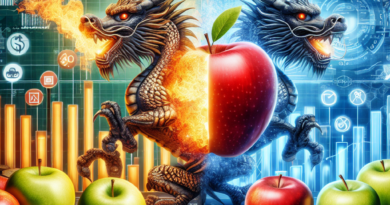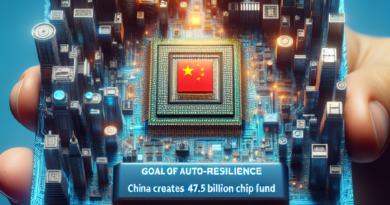US-China chip war, 5 winning stocks and 1 loser (according to Citi)
5 stocks could benefit from the chip war involving the US and China.
The challenge is crucial and difficult for large, publicly traded semiconductor manufacturers, as underlined by an analysis by Citi strategists.
While the tensions pose a headwind for well-entrenched chip stocks in the industry like Nvidia, other companies positioned to take advantage of the rivalry between powerhouses in this key sector are emerging.
Concerns about Taiwan's vulnerability and broader national security considerations are currently driving US and European investment in semiconductor manufacturing.
In turn, China is reacting to limits on technology imports by investing in its own chip industries.
In this turbulent environment, Citi has identified 5 stocks rated as winners in the tech war.
Why bet on these 5 stocks in the US-China chip war According to Citi, the enormous wave of investments in semiconductor equipment by the great powers is an element that should not be underestimated.
About $100 billion in extra spending, for example, is the result of US and European government efforts alone to incentivize the sector.
Faced with this push, a number of technology players should find advantage: Taiwan Semiconductor Manufacturing, Samsung Electronics, ASML and, in the United States, Applied Materials and GlobalFoundries.
Citi analyst Chris Danely highlighted that in the semiconductor equipment sector, “our top picks are ASML and Applied Materials, as each has a dominant position.” Applied Materials is America's largest maker of semiconductor manufacturing equipment, and Citi is betting on its leadership in materials engineering to maintain that position for the long term.
The bank's rating on the company is Buy, with a target price of 780 euros.
The stock is up 55% this year.
The bank has a buy rating and $170 price target on Applied Materials.
Geopolitical concerns over Taiwan may appear to be a headwind for TSMC, but strategists are confident the company will remain the largest contract chip maker in the world.
We also believe TSMC will remain the dominant foundry given its lead in manufacturing, and the stock remains a top pick, although Samsung and GlobalFoundries could benefit from secondary sourcing outside of Taiwan," Danely wrote.
Citi has a buy rating and a $70 price target on GlobalFoundries, which last traded at around $54.
Dutch company ASML has a dominant position in “lithographic” machines, key to semiconductor manufacturing.
Citi expects which will be a major supplier to European chip companies as they build new manufacturing sites.Geopolitical concerns over Taiwan may appear to be a hindrance for Taiwan Semiconductor Manufacturing, or TSMC, but Citi is confident the giant will remain the largest contract chipmaker “We also believe TSMC will remain dominant given its lead in manufacturing, and the stock is a top pick, although Samsung and GlobalFoundries could benefit from secondary sourcing outside of Taiwan,” Danely wrote.
Citi has a buy rating and $70 price target on GlobalFoundries, which last traded at around $54.
Who loses the semiconductor challenge? Intel is not included in the list of beneficiaries of the chip race.
The company is expanding its business to compete with TSMC and Samsung Electronics, but analysts are pessimistic about its prospects.
The relative lack of experience and economy of scale represents, for example, a negative factor.
“We believe Intel will fail to realize its ambitions as it lags far behind TSMC and has not proven it can be a competitive industry.
Analog companies will also experience lower growth due to China's policy of internalizing everything semiconductor-related,” Danely wrote.
Danely has a neutral rating and a $34 price target on Intel shares, last trading at around $43.
DISCLAIMER The information and considerations contained in this article should not be used as the sole or primary support on which to make investment decisions.
The reader retains full freedom in his own investment choices and full responsibility in making them, since he alone knows his risk propensity and his time horizon.
The information contained in the article is provided for informational purposes only and its disclosure does not constitute and should not be considered an offer or solicitation to the public for savings.




